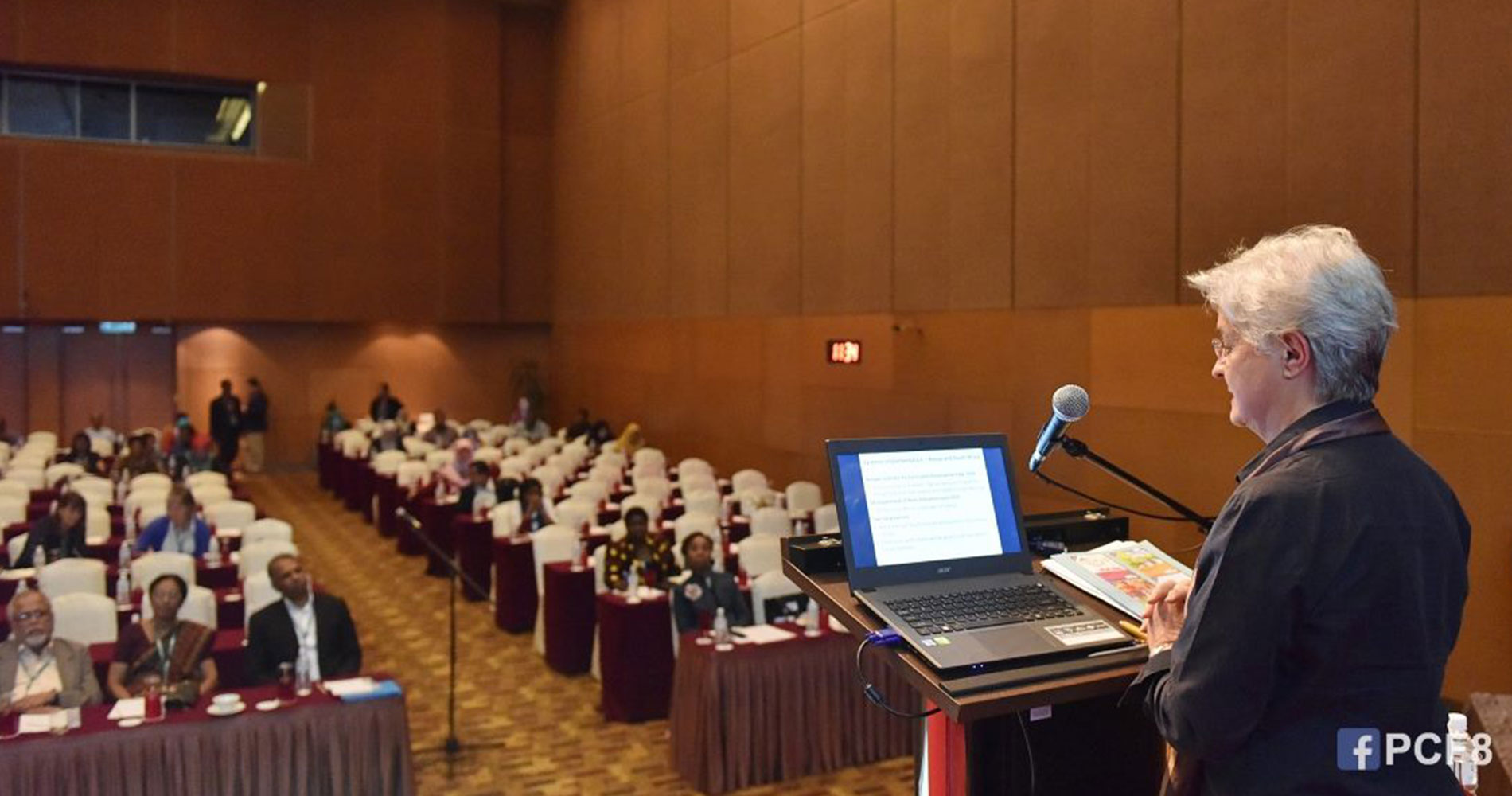
Sub-theme: Access and Inclusion
Policy to Support Increasing Access
KLCC, 30 November: This session examined the impact of policy on increasing access and making learning more inclusive with a focus on the African and Asian regions.
Prof Dr Ashok Kumar Gaba, from Indira Gandhi National Open University (IGNOU), India, whose research on Governmental policies on skills development and training in Asian Commonwealth countries found that the use of technology could help boost the development of skilled human capital in these countries.
He cited Singapore as an exemplary nation that has successfully capitalised on technology for skills training, which led to its consistently high ranking in the human development index. He said distance learning and the use of MOOCs are possible solutions to overcome skills shortage in Asian Commonwealth countries.
The formulation of gender policy for open schooling in India could lead to gender equity, equality, empowerment and justice, based on a research by the National Institute of Open Schooling (NIOS), India.
Dr Evode Mukama from University of Rwanda (UR), Rwanda, said to ensure sustainable implementation of ODL in the country, the Government needs to build an institution dedicated to delivering ODL courses, which is in line with the country’s strategic plans.
Prof Dr Prabhakar Rao of University of Hyderabad, India, contended that educational technology policies need to address issues pertaining to quality, access, equity, affordability and delivery. His study showed that greater efforts were being made by state and central governments to introduce technology in education to enhance quality and access. Universities and institutions are also actively engaged in building the necessary infrastructure and formulating policies for open learning.